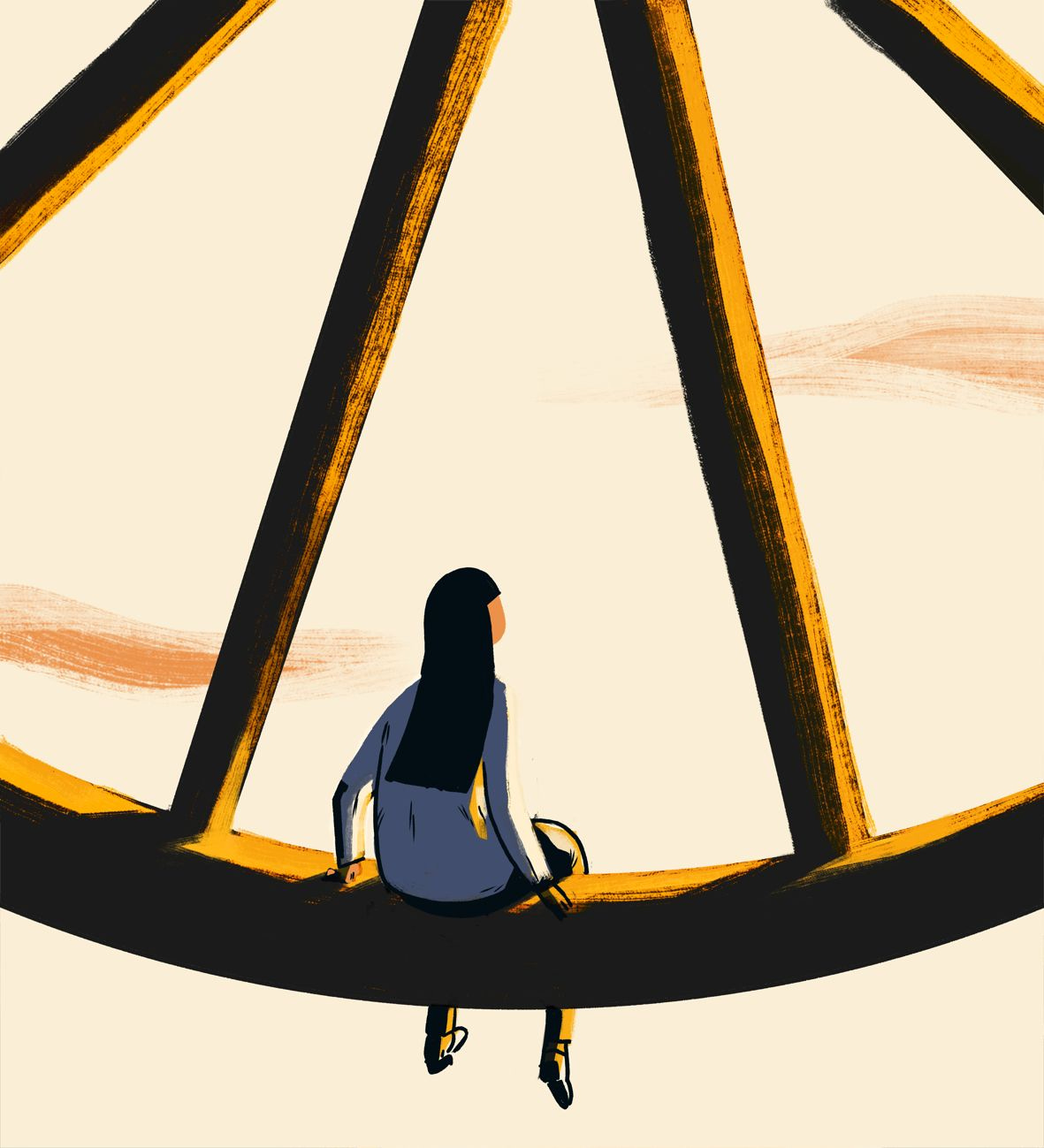When I find myself in times of trouble, mother math comes to me
Regression to the mean as good life advice

“I can't go on. I'll go on.” ―Samuel Beckett, The Unnamable
Life sucks sometimes. Your career will suffer setbacks. You’ll fight with your spouse. Your children will misbehave. If not outright disease or injury, then some other issue will plague you. Often the problems cluster together, little imps summoning their friends. Bad news comes in threes, as the saying goes.
My friends have another expression for this clustering. When everything goes wrong you’re “at the bottom of The Wheel.” I guess “The Wheel” is some sort of feat of karmic engineering, an invisible turning wherein if things get better for one, they get worse for another (you’re strapped to The Wheel too, you just didn’t know until now).
Which is why in the scholarly literature on depression there’s so much evidence for a series of negative life events being “triggers.” While for some, depression has no clear outside source, for many others it does; if not from one particular source like job loss, then via the aggregation of many.
So I’d like to share a personal analogy I myself have found extremely helpful when you feel at the bottom of The Wheel: the cold boring reassurance of mother math.
Here is what she whispers in your ear: “Please, child, meditate on statistics.”
What she means is that any process that unfolds dynamically, be it your relationship with your family, your career, your own health, anything at all really, rarely moves in a straight line. Instead, it meanders, it drifts, it dives, it dips.
Sometimes, of course, the line really does fall off a cliff. A health problem occurs, and you never recover. Bonds are broken, then never mended. But your life is a complex system, and complex systems don't usually move in ways from which there’s no return to some local area in the dynamics. Instead, they often revert to the mean. And funnily enough, the points where personal problems present themselves as overwhelming and consuming are statistically often destined to be the lowest region of a dip.
Which entails a kind of personal anthropic principle: an observer effect for when everything goes wrong. Because for any observer (you) experiencing the process from inside, the point of maximum concern about a problem will often match the point of inflection where the trend reverses and the problem gets “miraculously” better. For example:


